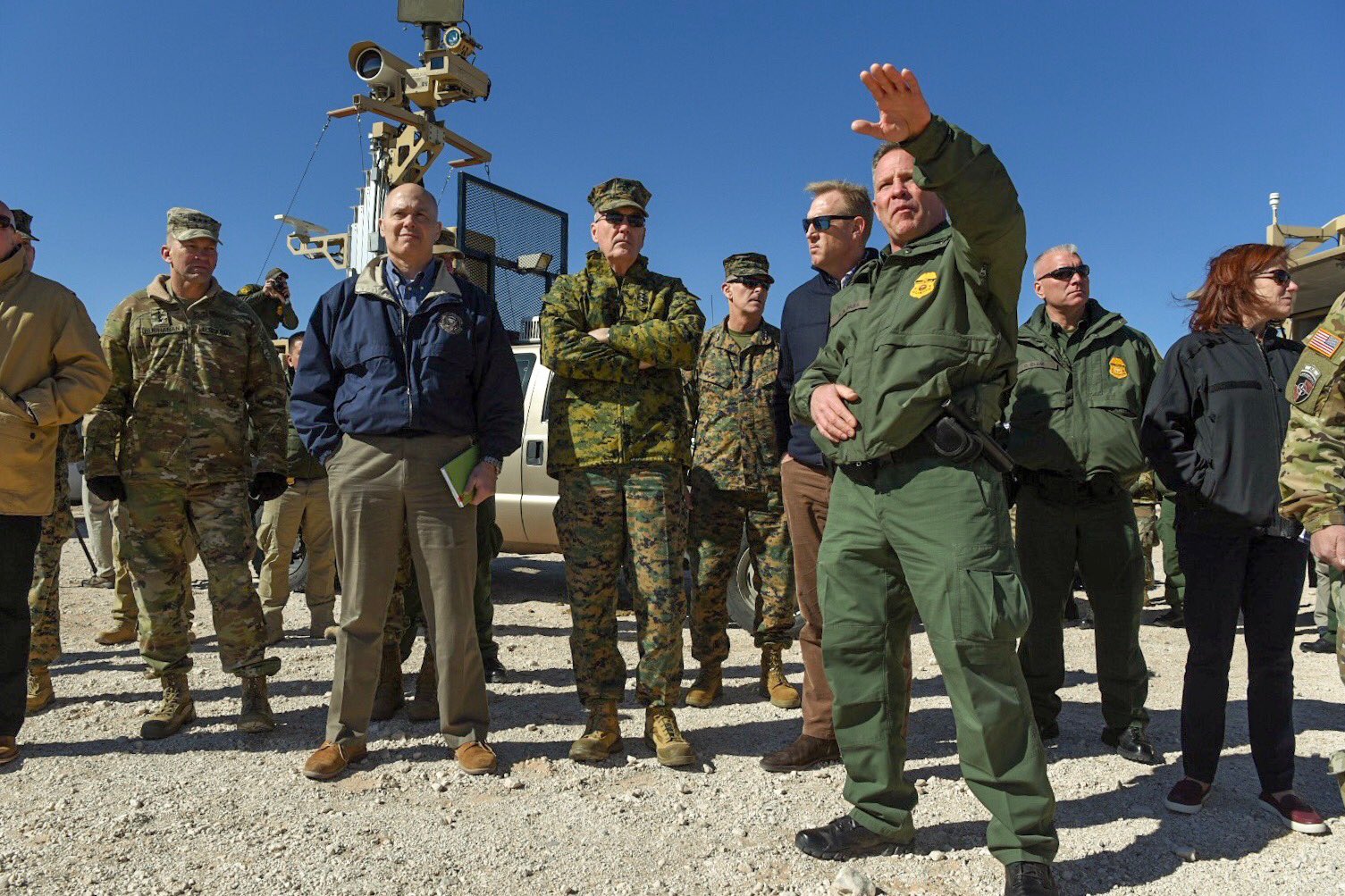
Acting Defense Secretary Patrick Shanahan and Chairman of the Joint Chiefs of Staff Gen. Joseph Dunford visited the US-Mexico border near El Paso, Texas, on Feb. 23, 2019. Twitter photo via Acting Defense Secretary Patrick Shanahan.
The Pentagon is ruling out using any military housing funding to pay for the proposed border wall, and will look instead at military construction projects that have not been awarded yet or recapitalization and modernization projects to cut in order to pay for the project.
President Trump on Feb. 15 declared a “national emergency” at the southern border and said the administration would use Defense Department funding to help cover the cost of building a border wall.
“We had certain funds that are being used at the discretion of generals, at the discretion of the military,” Trump said during a press conference announcing the declaration. “Some of them haven’t been allocated yet, and some of the generals think that this is more important.”
Defense officials, briefing reporters on background on Friday, said the Pentagon has asked the Department of Homeland Security for a prioritized list of military construction projects, and the Joint Staff and US Northern Command will evaluate the list. The officials also briefed Capitol Hill on Friday, but did not provide a specific timeline going forward. Any changes are likely to meet opposition from lawmakers.
On Saturday, Acting Defense Secretary Patrick Shanahan and Chairman of the Joint Chiefs of Staff Gen. Joseph Dunford visited the border near El Paso, Texas, in a trip that was kept secret until they arrived, for security reasons. During the visit, they were briefed by Customs and Border Patrol on their mission and security needs.
The Pentagon has identified $3.6 billion in military construction funds that could be used, and the goal is to cut back on projects that would have “minimal impact” on military missions, a defense official said. Additionally, there are $2.5 billion in DOD drug interdiction funds the White House has identified that could be used to support wall construction.